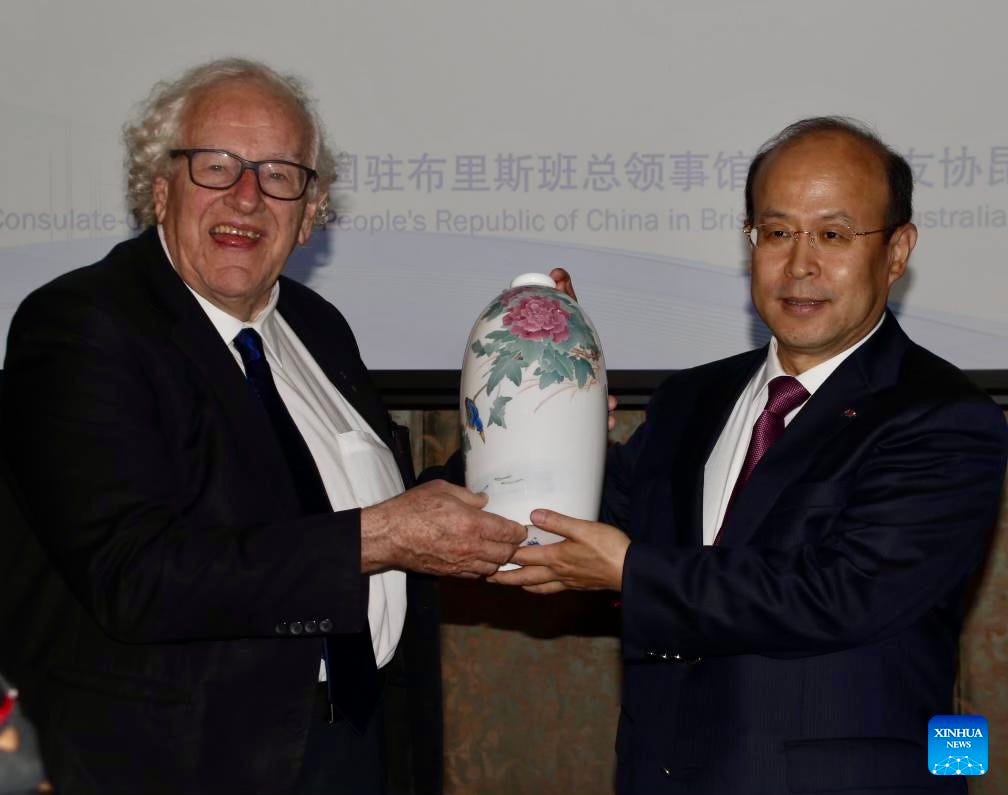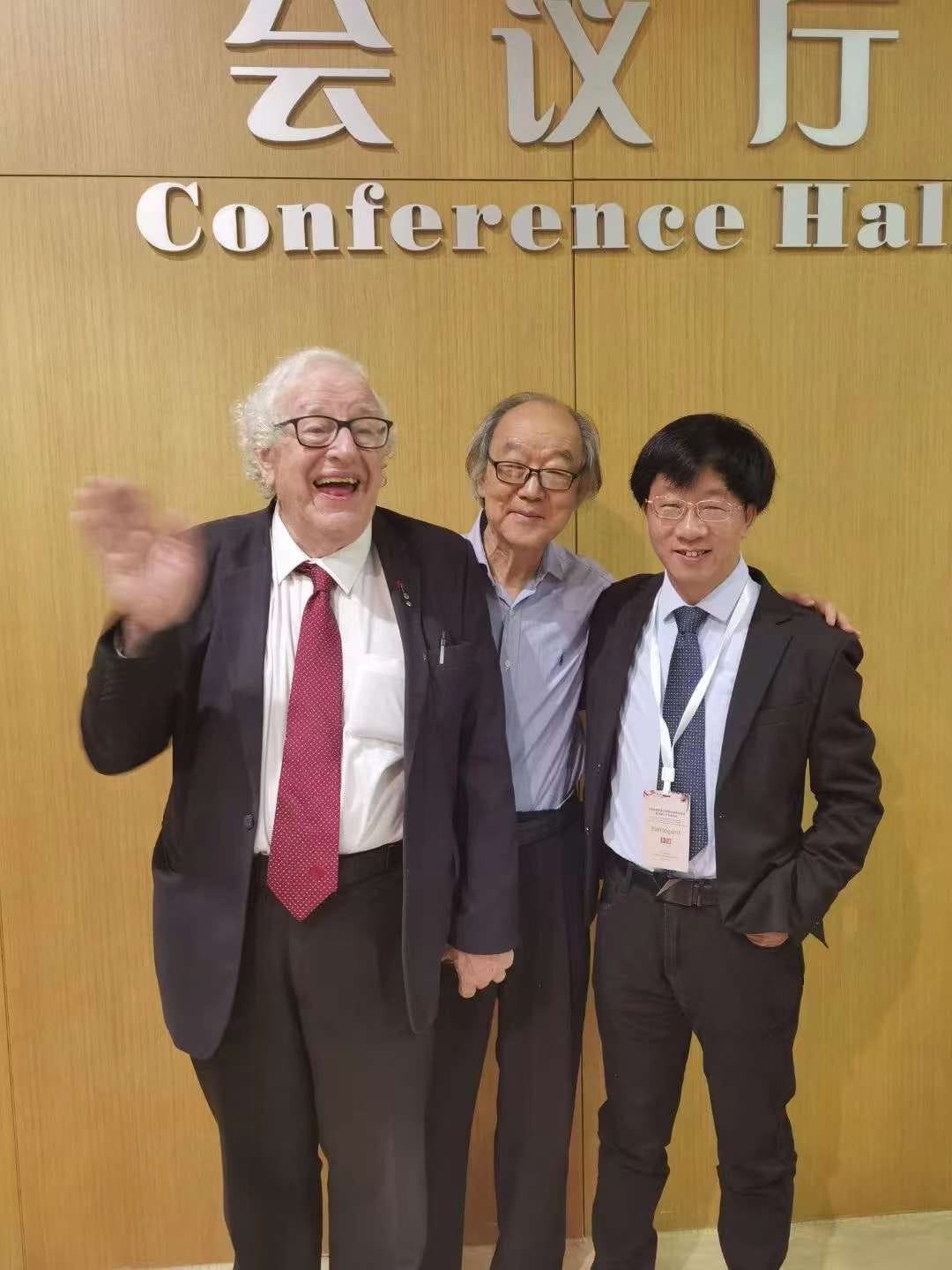Colin Mackerras - Sinologist Extraordinaire
The Colin Mackerras Chair in Australian Studies has been created at Beijing Foreign Studies University to celebrate the Australian scholar's 60 years of teaching in China.
Australian scholar's 60 years of teaching in China
A seminar commemorating the 60th anniversary of Australian sinologist Colin Mackerras' teaching in China was held Thursday in Brisbane, capital of Australia's northeastern state of Queensland. The seminar, also focused on China-Australia relations, was jointly hosted by the Chinese Consulate-General in Brisbane and the Queensland branch of the Australia China Friendship Society.
Mackerras, an emeritus professor at Griffith University, went to China in 1964 and taught at the Beijing Foreign Languages Institute (now Beijing Foreign Studies University) until 1966.
Over the past 60 years, he has been engaged in Sinology research, actively promoting exchanges and cooperation between universities and cultural institutions in Australia and China and making outstanding contributions to the study of China and the promotion of Chinese culture.
In September 2014, Mackerras was awarded the Friendship Award by the Chinese government.

The seminar, also focused on China-Australia relations, was jointly hosted by the Chinese Consulate-General in Brisbane and the Queensland branch of the Australia China Friendship Society. It was attended by more than 80 people, including Mackerras and his family, students and friends.
"This seminar is a testament to the strong ties and mutual respect between our nations," Casey Davidson, president of the Queensland branch of the Australia-China Friendship Society, said in her opening remarks at the seminar.
Mackerras, an emeritus professor at Griffith University, went to China in 1964 and taught at the Beijing Foreign Languages Institute (now Beijing Foreign Studies University) until 1966.
Over the past 60 years, he has been engaged in Sinology research, actively promoting exchanges and cooperation between universities and cultural institutions in Australia and China and making outstanding contributions to the study of China and the promotion of Chinese culture.
Chinese Ambassador to Australia Xiao Qian spoke highly of Mackerras' outstanding contribution to promoting cultural and people-to-people exchanges between China and Australia.
"It is precisely because of a group of China-Australia friendship envoys like Professor Colin Mackerras that China-Australia relations always contain vitality even in the face of difficulties," Xiao said in his speech at the seminar.
Mackerras said in his speech that he fell in love with China and its people when he first went to China to teach in the 1960s and he still has that view to this day.
In his concluding remarks at the seminar, Chinese Consul General in Brisbane Ruan Zongze said Mackerras is still traveling between China and Australia in his octogenarian years, persisting in introducing the real China and calling for friendship between the two countries.
Read more here.

The Colin Mackerras Chair of Australian Studies at Beijing Foreign Studies University
By Zhao Yimeng (China Daily)
The Colin Mackerras Chair in Australian Studies Program was established on Wednesday in Beijing to honour the professor's contribution to the educational and intellectual exchanges between China and Australia.
The chair program was jointly launched by the Australian Studies Center at Beijing Foreign Studies University and the Foundation for Australian Studies in China (FASIC).
Li Jianjun, director of the center, said highly qualified Australian scholars will participate in the chair program, and BFSU and FASIC will work together on the appointment of the chair.
Starting from the autumn semester next year, the tenure of a chairperson at the center will be 4 weeks to 18 weeks each time.
The main responsibilities of the chair are to teach two courses to students from both BFSU and other universities in Beijing and to help supervise students' research at the centre, Li said.
The celebration of Colin Mackerras' 60th anniversary of teaching at BFSU is held on June 5, 2024. [Provided to China Daily]
The chair program was established in the name of Colin Mackerras, emeritus professor at Griffith University in Australia and an expert in Australia-China relations and Chinese culture.
Born in Australia in 1939, Mackerras has visited China nearly 70 times and taught at BFSU, first from 1964 to 1966 and many times since then, contributing to the educational exchanges between the two countries.
Mackerras, a winner of the Friendship Award from the Chinese government, has written or edited over 40 books about China.
The celebration of Colin Mackerras' 60th anniversary of teaching at BFSU was held on Wednesday, when his friends, colleagues and students made remarks on his academic achievements and shared their personal friendship.
Read more here.
Colin Mackerras perspectives on Xinjiang modernisation and how local tradition has been equally embraced
By Zhao Manfeng (China Daily)
"Xinjiang is modernising quickly while keeping its ethnic traditional culture, and the region will embrace a hopeful future," said Australian sinologist Colin Mackerras.
Mackerras, professor emeritus at Griffith University in Australia and a fellow of the Australian Academy of Humanities, made the remarks during his keynote speech at the International Forum on the History and Future of Xinjiang on Wednesday.
Citing Xinjiang's poverty alleviation efforts, life expectancy and health level — including infant mortality, Mackerras said Xinjiang has become very modern since his first visit to the region in 1982.
"Despite spurious reports spread by some Western media that China is trying to eradicate the local culture, factual data and my experience show otherwise," said Mackerras.
"What I see in Xinjiang is attempts to preserve culture, arts, the historical relics, language, and there are more mosques in Xinjiang per capita than anywhere else in the world."
Mackerras took the example of his travel to Yarkant county in 2018, where he saw that the Twelve Muqam, a kind of traditional music of the Uygur ethnic group, was being taught in a dance training school.
"The ethnic culture is surviving quite well here in Xinjiang, and the ethnic music and dance is continually performed both by professionals and by ordinary people, and the Uyghur language seems to me to be used very wildly, much more widely than the use of indigenous languages in Australia or the United States," said Mackerras.
"In the process of modernisation, Xinjiang has a retention of culture, which includes languages, arts, architecture and food," he said.
"Xinjiang has a diverse and integrated culture, and the multiculturalism is indeed an important part of the great Chinese civilization."
The sinologist attributes the West's misinformation to ignorance of Chinese policies. "The West knows so little about how much support the Chinese government got from its people," said Mackerras.
Looking ahead, with the Belt and Road Initiative creating infrastructure across the greater Eurasian continent, Xinjiang will embrace more opportunities in trade and civilization dialogues.
"From any perspective of development, Xinjiang has performed excellently in recent years, and it has a bright future ahead," he concluded.
Mackerras studied the Tang Dynasty (618-907) for his master of letters degree at the University of Cambridge in the United Kingdom in 1964, and completed his PhD on Chinese opera at the Australian National University in Canberra six years later.
Mackerras has spent 60 years teaching and writing about China. Specializing in Chinese history, art and ethnic minorities, he has written or edited more than 40 books on these topics.
Read more here.






